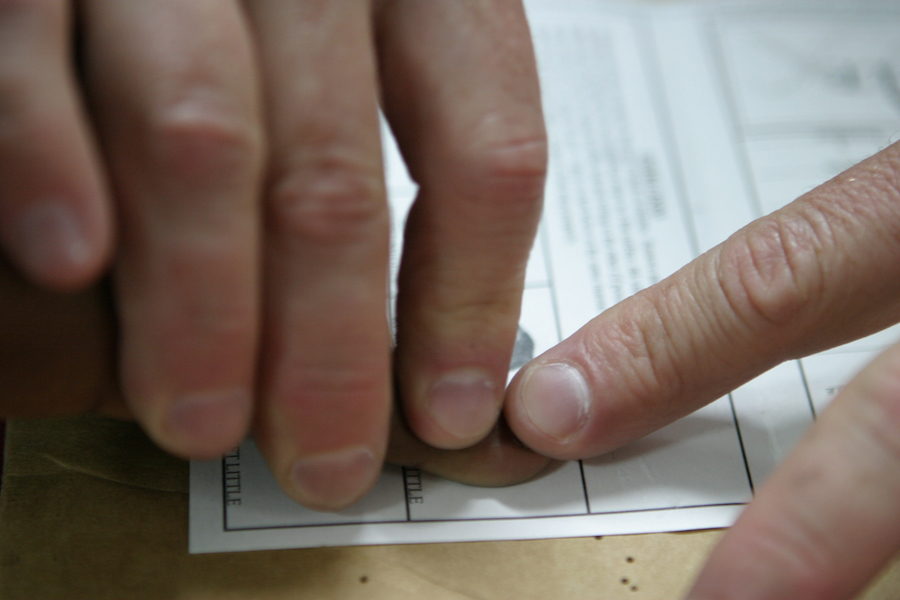
Of the many graduate programs that attract students to UC Davis, the forensic science program does not have as high of a profile as some, but it is no less successful.
In a recent article highlighting several UC Davis programs that “boost careers,” it was noted that 90 percent of graduates of the forensic science program now work directly in the field, “either for local, state, federal or private crime labs, at a DNA testing facility or within law enforcement.”
“UC Davis’ forensic science graduate program has prepared me extremely well for the rigors and workload that a forensic scientist of today must tackle,” said An Truong, a current forensic science masters student finishing his thesis. “I now work in at crime lab in Sacramento while continuing to finish to my degree, and I can honestly say without the support and guidance of the graduate program I would not be where I am today.”
Ruth Dickover, the director of the program, explained how it began in 2002.
“UC Davis was approached by the Department of Justice about the feasibility of setting up the program […] because many crime labs were having trouble filling senior positions,” Dickover said. “And FBI quality assurance standards require that people [in specific positions] have master’s degrees.”
To go back another decade, additional demand for forensic scientists was created by a Supreme Court case that increased standards for what evidence is qualified to be presented to a jury.
“In 1993, in a decision entitled Daubert v. Merrell Dow Pharmaceuticals, Inc., the United States Supreme Court reformed the test for determining the admissibility of scientific testimony,” said Edward J. Imwinkelried, the Edward L. Barrett, Jr. Professor of Law Emeritus at the UC Davis School of Law. “The Court ruled that the proponent of expert testimony based on a technique or theory must demonstrate that it had been empirically validated.”
Imwinkelried is the author of a prolifically cited book called “Scientific Evidence,” which focuses on DNA typing, forensic psychiatry and laser techniques for fingerprint detection. This book was even cited by the Supreme Court in the Daubert v. Merrell Dow Pharmaceuticals case.
“Three quarters of the states, including California, have now adopted some variation of the Daubert test,” Imwinkelried said. “After Daubert, it became clear that the experts who took the stand to testify had to know more than which buttons to push; they had to be prepared to explain the underlying science. That’s why programs like ours are so vital.”
Dickover said that many of the first graduates to complete the program were experienced forensics lab employees going back to school for master’s degrees. Nowadays, there’s more of a mixture of experienced students and undergraduates from around the world going into the program with backgrounds in science, especially chemistry and biology.
“It is important to have a strong background in chemistry, especially for the forensic DNA track,” Dickover said. “Criminalistics, the other track, also deals with controlled substances, firearms and trace evidence testing.”
Dickover also commented on how the program has grown over the years and how the subjects’ interdisciplinary nature allows for a wide variety of instructors and professors to become involved.
“This was originally a small program that had to use [a] shared space, but now it has its own building in the campus research center [across I-80],” Dickover said. “We do have professors spread across campus, people in many fields who are interested in forensics.”
While some of the program’s instructors are professors at the university in areas like biology and chemistry, Dickover added that many are professionals in the field.
“Some instructors that are teaching the heavy scientific material come from the UC Davis campus, but about half are actually professional forensic scientists, helping students to learn the equipment and learn the techniques,” Dickover said. “This can only be taught by those with hands-on experience.”
Despite the program’s success and small size, it does not plan on seeing additional growth and expansion in the coming years; according to Dickover, they have more or less “optimized” the number of students that the program’s faculty and other resources can best serve. The testimonials of current and former students demonstrate that the program has been successful in engaging students and exposing them to a variety of resources.
“The stellar staff at the UC Davis Forensic Science Graduate Program instructed and guided me to achieve my dreams in becoming a researcher in the forensic genetics field,” said Nikhil Bose from the program’s class of 2014. “The combined classroom, laboratory and research based curriculum ensured that I have high-level education suitable for a career in a crime lab as well as academia.”
Written by: Benjamin Porter — features@theaggie.org



